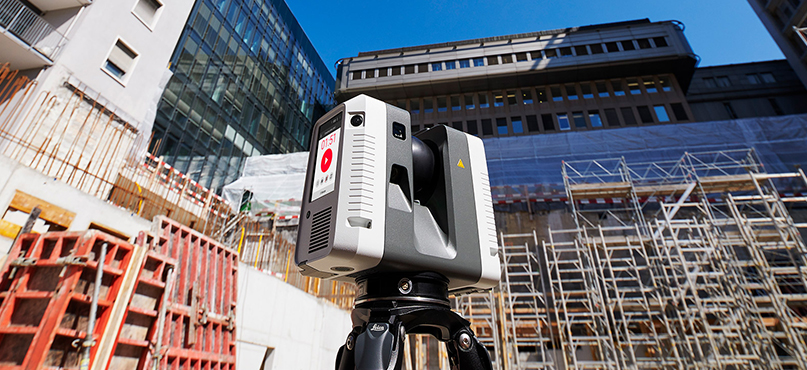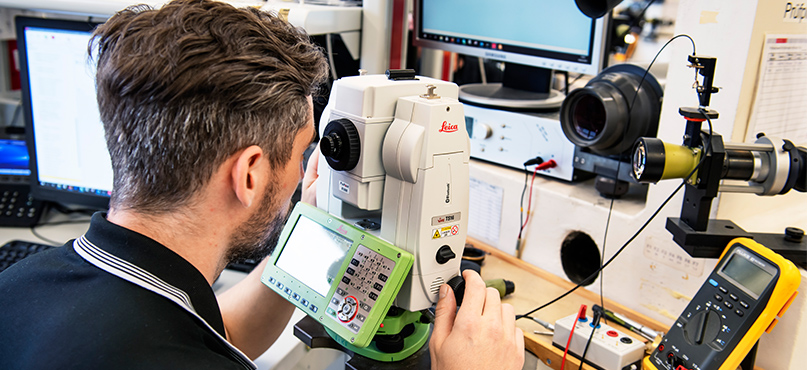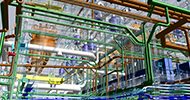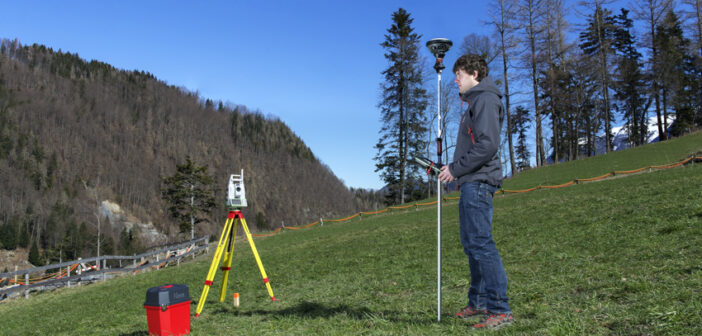This three-part series explores how Hexagon’s wide range of products and services contribute to a more sustainable economy, safer workplaces, and a greener planet.
Hexagon’s Commitment to a Sustainable Future
In a rapidly evolving corporate landscape, investors and stakeholders expect companies to take a more holistic approach to business success. Environmental, Social, and Governance (ESG) criteria increasingly play a role in how companies, investors and stakeholders measure performance.
The environmental component of ESG scrutinises a company’s ecological footprint, examining issues such as consumption, emissions, and natural resource depletion. Meanwhile, the social aspect delves into a company’s relationships with its employees, customers, suppliers and surrounding communities, and includes considerations like human rights and diversity. The governance pillar revolves around management structures, policies and practices, ensuring transparency and ethical conduct.
As the significance of ESG continues to grow, it is becoming clear that the future of business performance lies in the balance of profit, planet and people. Forward-thinking organisations like Hexagon are rising to the challenge, holding themselves accountable for their impact on the environment and society. Hexagon seeks to have a positive impact through its operations and solutions. Leveraging our innovation potential, we employ cutting-edge technology to drive the shift toward a more sustainable future.
We are also committed to doing more than stating our values – we want to show you how these values manifest themselves, from the long-lasting products we create, to technologies that enhance safety and protect people and the environment, to solutions that help advance the transition to a low-carbon future. This series demonstrates this commitment in action and provides resources for learning more.
Making Products Last
Creating durable products is essential for environmental sustainability. It reduces waste and natural resource consumption while minimising the environmental impact of manufacturing, transportation and disposal. At Leica Geosystems, part of Hexagon, we commit to ensuring that our customers can use our products efficiently for as long as possible. This saves time, money and resources and reduces the overall environmental footprint of our products while optimising the return on investment (ROI) for our customers.
Product quality
Product quality at Leica Geosystems, part of Hexagon, applies to reliability, accuracy, usability, data integrity and data security, but also the durability. At Leica Geosystems, quality management is not a function of one department but rather a fundamental part of the design and action-taking processes of all staff with strong support by the corporate management team. Consequently, we do not only speak about our quality management system but about an integrated management system that serves as a global base.

Support technologies
Providing outstanding support is important to us. We value the relationship with our customers and want you to make the most of the technology you have. But our support also has significant sustainability implications: People who receive proper training on how to use and maintain their products are more likely to properly tend to them and use them for a longer period. This can reduce the need for frequent replacements, which is environmentally damaging and expensive. Regular maintenance which is standard at Leica Geosystems helps minimise downtime and repairs that can lead to a reduction in the effective product life-time, hence reducing waste and saving resources.
Making support easily accessible helps to maximise product usage and minimise mistakes that can lead to incorrect deployment that can result in wasted use of materials that need to be replaced (think of concrete being poured in the wrong place).
With Leica Geosystems’ support technologies, expert personnel can remotely access customer field equipment to solve even the most difficult support cases without needing to travel on-site. This both saves time and cuts emissions caused by travel.
- Active Assist, integrated into field software, allows customers to contact support professionals at the push of a button. A local support engineer can then securely access the device and guide the customer back to full productivity within minutes.
- Leica ConX, a cloud-based collaboration tool, enables real-time remote communication between office and machine for troubleshooting, on-the-fly training and setup without travel which cuts emissions, saves costs and avoids delays.
In addition, we provide a portfolio of online training material that customers can access anywhere and at any time, allowing them to become more productive by continuously upgrading their skills. A case in point is myLearning by Leica Geosystems, available to all customers with products that have valid Customer Care Packages.
Repairing instead of replacing
At Leica Geosystems, we aim to repair rather than replace defective products even if they were dropped, mishandled or severely damaged by weather incidents. Thanks to our network of authorised local distribution partners, we have a controlled process of keeping our products in the market for as long as possible. All service centres are regularly re-certified and operate with the same professional tools and standards. By emphasising durability and increasing the longevity of our products, we reduce the frequency of replacements and thus minimise waste and reduce the energy required for production, transportation and disposal of products. This, of course, corresponds to a more sustainable use of resources and a reduction of our products’ overall impact on the environment. For products that cannot be repaired, we endeavour to recycle its individual components.

Pre-owned equipment
As technology advances, customers may want to upgrade their equipment to improve productivity or expand their business capabilities. However, discarding fully functioning technology is wasteful. To encourage circularity, we actively manage a network of pre-owned survey equipment that is carefully refurbished and returned to active use.
We prioritise quality and reliability in all of our pre-owned equipment. Each product undergoes a rigorous refurbishment process that includes comprehensive testing, cleaning and repair as needed. Through this process, companies with limited financial resources or less immediate productivity needs can access high-quality equipment at a lower cost. And by extending the useful life of these products, we can reduce the overall environmental impact of the industry.
One instrument can go through several cycles of ownership. As long as our equipment is still serviceable, we do what we can to keep our products in the market for as long as possible.
Recycling passports
If a product does reach end-of-life, we support recycling and responsible disposal. To ensure that our products are recycled responsibly, we offer recycling passports for each item, detailing the materials used and the appropriate recycling or disposal methods. By providing this information, we aim to reduce landfill waste and promote circularity.
We adhere to the Waste Electrical and Electronic Equipment Directive (WEEE) and the Restriction of Hazardous Substances Directive (RoHS), which became law in the European Union in February 2003. These directives establish systems for recycling and reusing electrical and electronic equipment, with the goal of reducing waste and promoting sustainability.
By emphasising recycling and waste reduction, we contribute to a more sustainable future and reduce our environmental impact.














